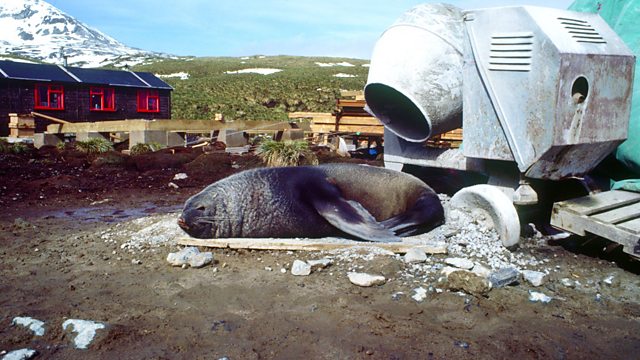Hector's Dolphin
Hector's dolphin is the smallest and one of the most endangered whales in the world. Monty Don finds out how people clash with it and how to share the sea with it.
Hector's dolphin is the world smallest marine cetacean and one of the most endangered. It's a shallow water specialist endemic to New Zealand that shares its space with commercial and recreational fishing. In this episode of Shared Planet Monty Don finds out why Hector's dolphin is so vulnerable and what's being done to protect it.
Last on
More episodes
Previous
Next
Dr Liz Slooten

Dr Liz Slooten is an Associate Professor in the Department of Zoology at the University of Otago in New Zealand and is the country鈥檚 leading authority on the use of population modelling to estimate sustainable levels of marine mammal bycatch in fishing operations. Her extensive research has also examined how tourism and other human activities affect marine mammals, including New Zealand鈥檚 Hector鈥檚 and Maui鈥檚 dolphins, bottlenose dolphins, sperm whales, right whales and New Zealand sealions.
Her work employs visual and acoustic techniques to survey survival rates, the movement of identifiable individuals, pollutant levels in marine mammals and other animals, reproductive biology, population modelling, risk assessment and decision analysis.
Dr Slooten also represents New Zealand at the Scientific Committee of the International Whaling Commission and has published two books and more than 40 papers specifically on the biology, behaviour and conservation biology of the New Zealand dolphin.
Derek Orner

Derek recently moved to work in the Office of Sustainable Fisheries, where he is the National Coordinator for the Bycatch Reduction Engineering Program (BREP) and also works on inter-jurisdictional fisheries management issues for Atlantic coastal species. NOAA is required to address bycatch reduction under several federal laws, including the Magnuson-Stevens Fishery Conservation and Management Act, Endangered Species Act and the Marine Mammal Protection Act.
As coordinator of the BREP for NOAA Fisheries, Derek oversees more than 拢1.5m annually in research to develop technological solutions aimed at minimising bycatch. He holds a BA in Biology from St. Mary's College of Maryland and a MS in Environmental Science and Policy from Johns Hopkins University.
Broadcasts
- Tue 1 Jul 2014 11:00大象传媒 Radio 4
- Mon 7 Jul 2014 21:00大象传媒 Radio 4
Learn about habitats with The Open University
Explore the twists and connections of natural life in four different UK habitats.

